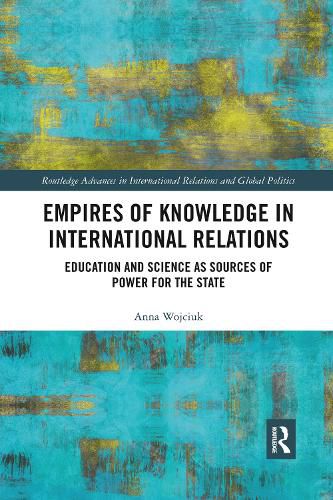Readings Newsletter
Become a Readings Member to make your shopping experience even easier.
Sign in or sign up for free!
You’re not far away from qualifying for FREE standard shipping within Australia
You’ve qualified for FREE standard shipping within Australia
The cart is loading…






This volume offers the first systematic account of how education and science have become sources of power for the states in international relations and what factors have effected this development.
Drawing together extensive empirical data on the USA, the EU, Japan, Korea, Singapore, and China, Wojciuk explores the factors and mechanisms through which education and science translate into the international position of different states, highlighting how they continue to contribute to the reproduction of the centre-periphery system in global politics. Written in an accessible style, the author argues that these factors increase the likelihood of success for states in international relations, even if in themselves, they cannot guarantee it. Specifying the ways in which education and science contribute to the power of a state in international relations, Wojciuk focuses on mechanisms involved in state-building processes and economic development, and invokes cases of successful competitive strategies involving education and science.
This work will be of interest to scholars in a wide range of subjects including education research, international relations and international political economy.
$9.00 standard shipping within Australia
FREE standard shipping within Australia for orders over $100.00
Express & International shipping calculated at checkout
This volume offers the first systematic account of how education and science have become sources of power for the states in international relations and what factors have effected this development.
Drawing together extensive empirical data on the USA, the EU, Japan, Korea, Singapore, and China, Wojciuk explores the factors and mechanisms through which education and science translate into the international position of different states, highlighting how they continue to contribute to the reproduction of the centre-periphery system in global politics. Written in an accessible style, the author argues that these factors increase the likelihood of success for states in international relations, even if in themselves, they cannot guarantee it. Specifying the ways in which education and science contribute to the power of a state in international relations, Wojciuk focuses on mechanisms involved in state-building processes and economic development, and invokes cases of successful competitive strategies involving education and science.
This work will be of interest to scholars in a wide range of subjects including education research, international relations and international political economy.